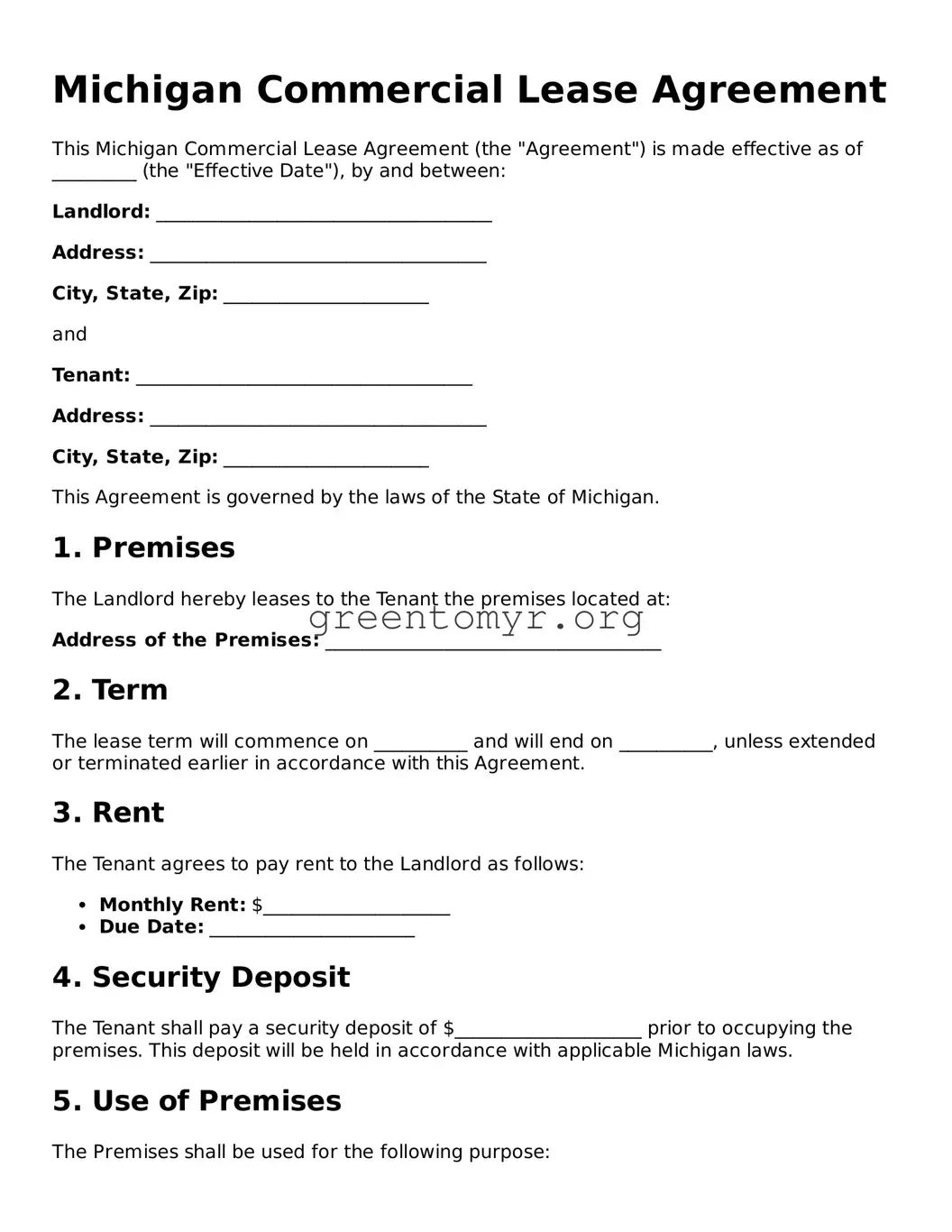Michigan Commercial Lease Agreement
This Michigan Commercial Lease Agreement (the "Agreement") is made effective as of _________ (the "Effective Date"), by and between:
Landlord: ____________________________________
Address: ____________________________________
City, State, Zip: ______________________
and
Tenant: ____________________________________
Address: ____________________________________
City, State, Zip: ______________________
This Agreement is governed by the laws of the State of Michigan.
1. Premises
The Landlord hereby leases to the Tenant the premises located at:
Address of the Premises: ____________________________________
2. Term
The lease term will commence on __________ and will end on __________, unless extended or terminated earlier in accordance with this Agreement.
3. Rent
The Tenant agrees to pay rent to the Landlord as follows:
- Monthly Rent: $____________________
- Due Date: ______________________
4. Security Deposit
The Tenant shall pay a security deposit of $____________________ prior to occupying the premises. This deposit will be held in accordance with applicable Michigan laws.
5. Use of Premises
The Premises shall be used for the following purpose:
Permitted Use: ____________________________________
6. Maintenance and Repairs
The Tenant is responsible for maintaining the premises in good condition. The Landlord will be responsible for major repairs unless caused by the Tenant’s negligence.
7. Alterations
The Tenant shall not make any alterations or improvements to the Premises without the Landlord’s prior written consent.
8. Termination
- Either party may terminate this Agreement by providing written notice of __________ days.
- This Agreement may also be terminated for breach, as described in Michigan law.
9. Governing Law
This Agreement shall be construed in accordance with the laws of the State of Michigan.
10. Signatures
IN WITNESS WHEREOF, the parties have executed this Agreement as of the Effective Date.
Landlord: _____________________________
Date: _____________________________
Tenant: _____________________________
Date: _____________________________
